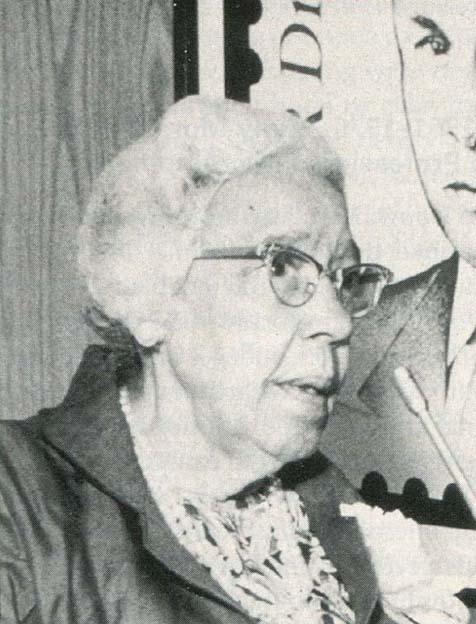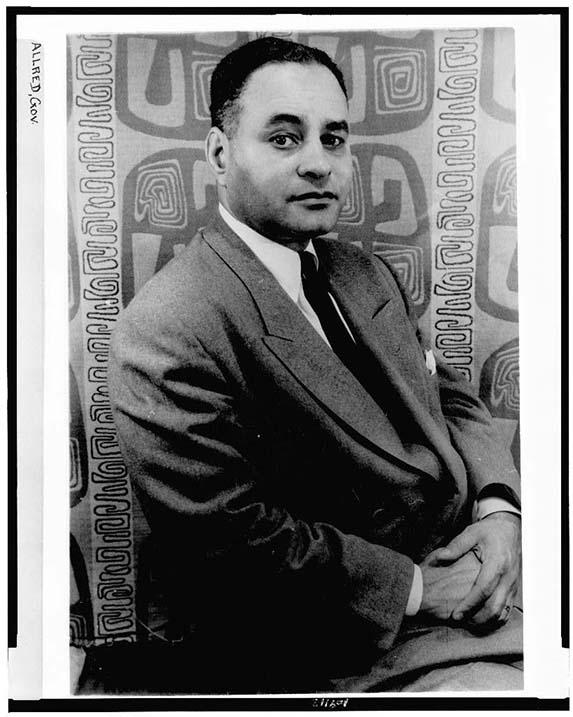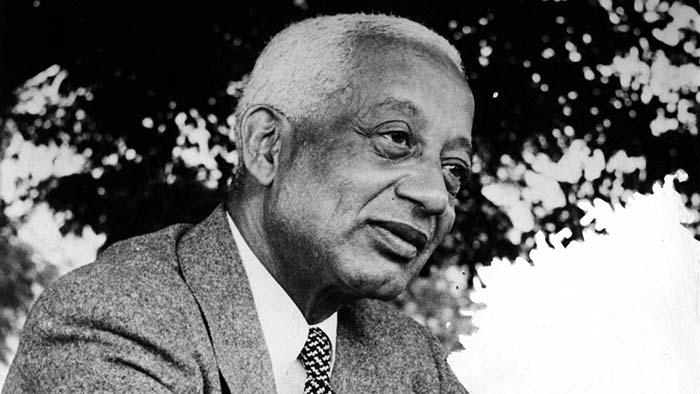It’s well known that some of the most impactful, culture-shifting scholars across all fields and industries have at one time called Howard home. While there may be a long list of notable Howard alumni that come to mind when thinking of the university’s historical impact, many remarkable figures who are pertinent to Howard’s legacy helmed classrooms and research labs as faculty. Many of the university’s former and current faculty members are distinguished “firsts” in their fields — as well as lauded scholars who have achieved notable feats — paving the way for the next generation of thinkers and achievers.
Alain LeRoy Locke
Commonly referred to as the “Father of the Harlem Renaissance,” Alain Locke (1885-1954) was a writer, philosopher, critic, and educator who was the first African American to be selected as a Rhodes Scholar in 1907. The Rhodes Scholarship, one of the most prestigious international scholarship programs, provides recipients with an educational grant to attend the University of Oxford. Locke joined Howard’s faculty as an English professor in 1912. After receiving a doctorate in philosophy from Harvard University, Locke returned to Howard, where he founded and chaired the university’s Department of Philosophy in 1921, one of the first philosophy departments established at a historically Black university.
Locke’s impact continues to influence academia at Howard today. Dr. Anika Simpson, associate professor and current chair of the Department of Philosophy, shared that “Locke’s work as a philosopher with interdisciplinary interests deeply inspires my work.” Simpson’s latest book, “Single Black Mother” (Oxford University Press, 2025), examines how state-regulated marriage undermines the freedom of unmarried Black mothers.
“My book argues that Black communities should consider marriage abolition as a path toward liberation. In my recent honors philosophy course, ‘Theories of Marriage Abolition,’ students engaged with literature from philosophy, legal scholarship, and feminist texts to critically explore the ethics and implications of state-regulated romantic relationships,” Simpson said.
These modern approaches to philosophical ideation can be traced back to Locke’s influence, particularly relating to the legacy of the Harlem Renaissance. Locke was one of the leading intellectuals of the first half of the 20th century who introduced the philosophical concept of the “New Negro,” which would initiate the onset of the Harlem Renaissance (initially known as the New Negro Movement). Locke’s edited volume, “The New Negro: An Interpretation” (1925), an anthology of fiction, poetry, and essays on African and African American art and literature, was considered a cornerstone of the Black cultural revolution in the U.S. in the 1920s. Before his retirement from Howard in 1953, the university awarded Locke with a Doctor of Humane Letters degree for his contributions to the institution. Locke bequeathed his collection of papers, sheet music, personal library, and art to Howard prior to his death in 1954. The university’s College of Arts and Sciences main building, Alain Locke Hall, is named in honor of Locke’s long-standing legacy.

Ruth Ella Moore
Ruth Moore (1903-1994) was an American bacteriologist and microbiologist, who in 1933 became the first African American woman to be awarded a doctorate in a natural science (bacteriology). Moore was a three-time Ohio State University graduate. She joined Howard’s College of Medicine as an instructor in 1933 and in 1939 was promoted to assistant professor. Moore, who was also a member of the Delta Sigma Theta sorority, was acting chair of Howard’s Department of Bacteriology (now known as the Department of Microbiology) from 1947-1948 and then served as chair of the department from 1949-1958. She was the first woman to head any department at the university. After stepping down as department head in 1960, Moore continued as professor emerita until her retirement from Howard in 1971.
I LIKE TO EMPHASIZE THE WAY BUNCHE LEVERAGED HIS BLACKNESS TO ENGAGE WITH THE WORLD. IT WAS AT THE CORE OF HOW HE MOVED.”
Moore’s scientific contributions included research on the bacteriology of tuberculosis, which aided in significantly curtailing the number of tuberculosis cases in the U.S.; the distribution of blood groups among Black Americans; the immunology of tooth decay, and the reaction of different gut microorganisms to antibiotics. In addition to her scientific accolades, Moore was also a talented seamstress and a lover of fashion, having sewn much of her own personal wardrobe. Several of her designed garments were featured in exhibition “The Sewer’s Art: Quality, Fashion, and Economy” in 2009.
Ralph Johnson Bunche
Ralph Bunche (1904-1971) was a celebrated civil rights activist, scholar, educator, and diplomat. In 1950, Bunche was the first African American to be awarded the Nobel Peace Prize for his work as a United Nations mediator in the Arab-Israeli conflict in Palestine. He negotiated a ceasefire agreement and secured peace between Israel and regional Arab nations with the Rhodes Treaty Negotiations. Bunche received his bachelor’s in international relations from the University of California at Los Angeles and later attended Harvard University where he received a master’s degree in political science and a doctorate in government and international relations.

Bunche served as a professor and was the founding chair of Howard’s Department of Political Science from 1928 to 1941. Bunche was also a contributing scholar in Howard’s School of International Relations, a school of academic thought originating at the university between the 1920s through the 1950s that emphasized race and empire in the study of international relations. He also organized a series of conferences at Howard focused on the struggles within African American communities in the U.S. During his tenure at Howard, Bunche played an instrumental role in helping to establish the U.N. In 1963, Bunche was awarded the Presidential Medal of Freedom by President John F. Kennedy and was later appointed as the under secretary-general of the U.N. in 1968 before his retirement in 1971. Today, Bunche’s diplomatic legacy continues to live on at Howard. In 1993, the university established the Ralph J. Bunche International Affairs Center to serve as a hub for international activities and interests.
Jamilah Rashid (B.A. ’96), assistant director of the Bunche Center’s study abroad program, educates current students and the broader Howard community on Bunche’s impact and legacy.
“I like to emphasize the way Bunche leveraged his Blackness to engage with the world,” Rashid said. “It was at the core of how he moved. The Center hosts an HBCU symposium, which was founded out of this need to create a space for HBCUs to have a conversation around internationalization that makes sense to us.”
In addition to its study abroad program, the Bunche Center also facilitates international fellowship opportunities for students. The center organizes events such as panel discussions, guest speaker talks, and its “embassy walks,” which introduce students to the various international embassies located in D.C. and the diplomatic work that happens in those spaces. The center also works with K-12 students, partnering with local schools to educate students on Bunche’s diplomatic legacy.
Article ID: 2386




